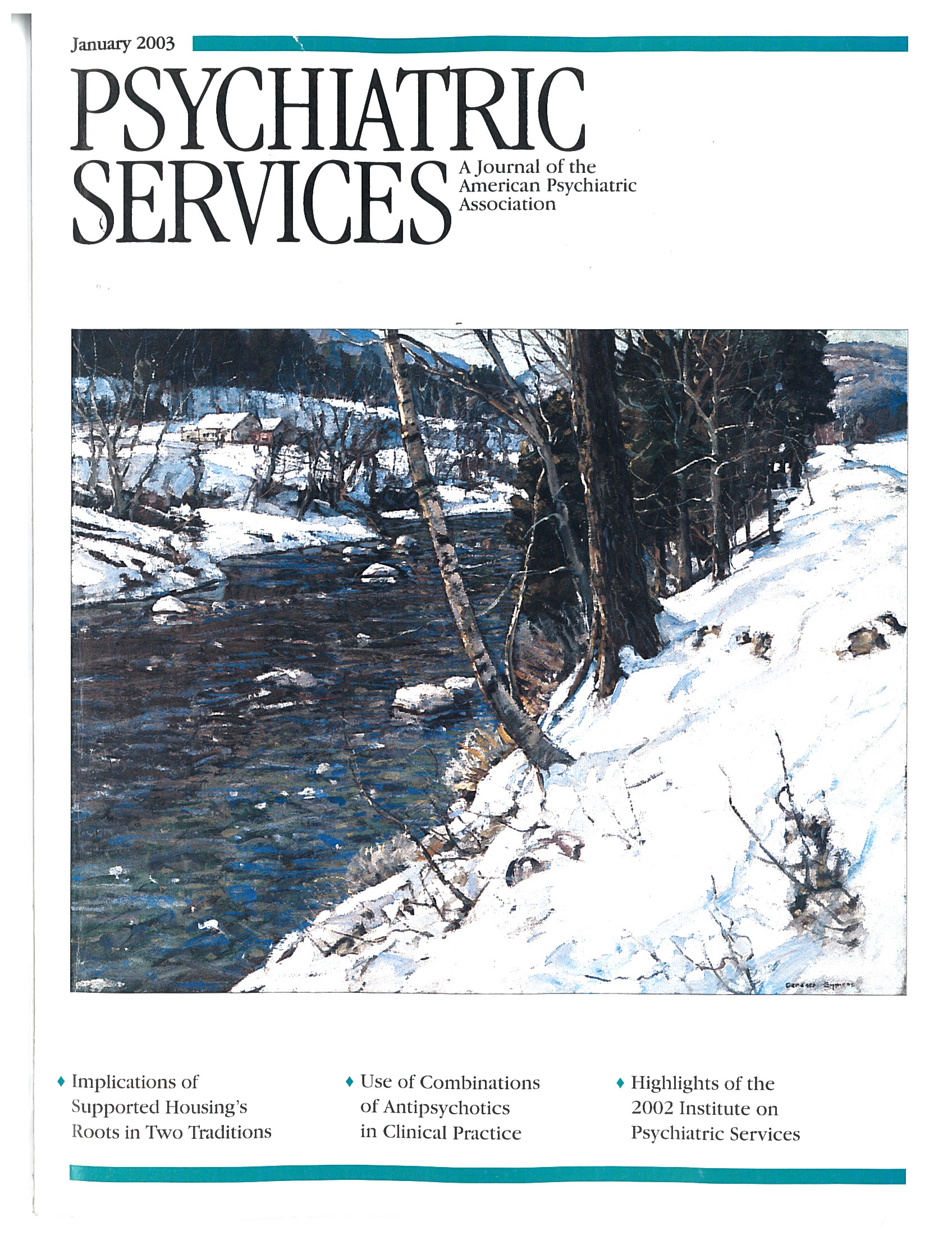Perceived Coercion at Hospital Admission and Adherence to Mental Health Treatment After Discharge
Abstract
The authors investigated whether mental health inpatients' perceptions of coercion were associated with later treatment adherence. Psychiatric inpatients receiving acute care at three sites were interviewed during their hospitalization and up to five times after discharge. Patients' perceptions of coercion were measured at admission. Adherence to medication and clinical treatment was measured every ten weeks for one year after discharge. Among the 825 patients who had a perceived coercion score and ten-week follow-up data and who reported that outpatient treatment was prescribed, perceived coercion scores were not associated with treatment adherence. The authors concluded that perceived coercion neither increases nor decreases psychiatric inpatients' medication adherence or use of treatment services after discharge.



